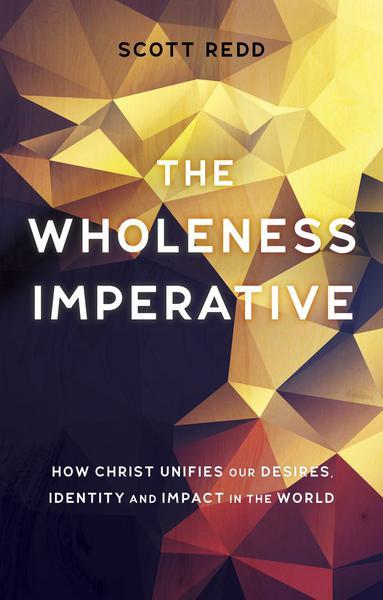
Scott Redd
Reviewed by: Dennis L. Disselkoen
The Wholeness Imperative: How Christ Unifies Our Desires, Identity and Impact in the World, by Scott Redd. Christian Focus, 2018. Paperback, 160 pages, $9.20 (Amazon). Reviewed by OP minister Dennis L. Disselkoen.
Christians are called to holiness and to wholeness, but sin has brought about brokenness and disintegration. In The Wholeness Imperative, Redd walks readers through his approach to a return to wholeness. He blends Old and New Testament passages to illustrate that God brings order out of chaos, beauty out of ugliness, and wholeness out of fragmentation. He skillfully employs extended personal anecdotes, ranging from his own early struggles with faith to his marriage and family life.
Foundationally, Redd says, “Wholeness is something that is true of a person and something that is pursued by a person…. This dynamic is often referred to by the label indicative-imperative. That which is undergirds and compels that which should be.… Being precedes becoming, and becoming fulfills being. They make up two parts seeking wholeness” (14–15, 17).
How should God’s people resist the pull to a fragmented life? How do they mend the perforation that divides this life among family, friends, work, public, private, earthly and heavenly? Redd sees that the Shema provides an answer to those questions: “Hear, O Israel, the LORD our God is one. You shall love the LORD your God with all your heart and with all your soul and with all your might” (Deut. 6:4–5). Redd writes that, “Wholeness presupposes faithfulness; faithfulness responds to the character of God by giving birth to a life unified by the love and worship of the living God” (21).
Redd then turns to the pursuit of wholeness. In Psalm 119, the psalmist recognizes the power of the Word of God to transform, ultimately finding consolation and healing in it. Redd connects this to our pursuit of worship, which anticipates “the day when Christ will come again and complete the work of redemption and new creation that He has begun in us already” (48).
What role did Jesus have in redeeming wholeness? Redd points us to Mark’s gospel, which shows “who Messiah is and what Messiah means for the world” (75). Christ speaks wholeness to the paralytic man and to us. “We come to Him broken and fragmented; He makes us whole” (84).
Redd states that the power of Christ to transform and to make whole extends to the spirit world and to the physical elements. Referring to the incidents of the stilling of the storm and of the demonized man near Gerasa, he says, “Our Lord…is the one who calms the sea-storm with a word and who restores peace to the troubled spirit” (102–3).
In his conclusion, Redd treats the importance of Christians living out their new lives with a sense of victory. “Jesus has turned back the curse of chaos, disease, and death. He began His work while He was with us, and He continues it today through His body, the church” (139).
March 30, 2025
On the Trail with a Missionary
March 23, 2025
Midnight Mercies: Walking with God Through Depression in Motherhood
March 16, 2025
March 09, 2025
Zwingli the Pastor: A Life in Conflict
March 02, 2025
February 23, 2025
African Heroes: Discovering Our Christian Heritage
February 16, 2025
© 2025 The Orthodox Presbyterian Church